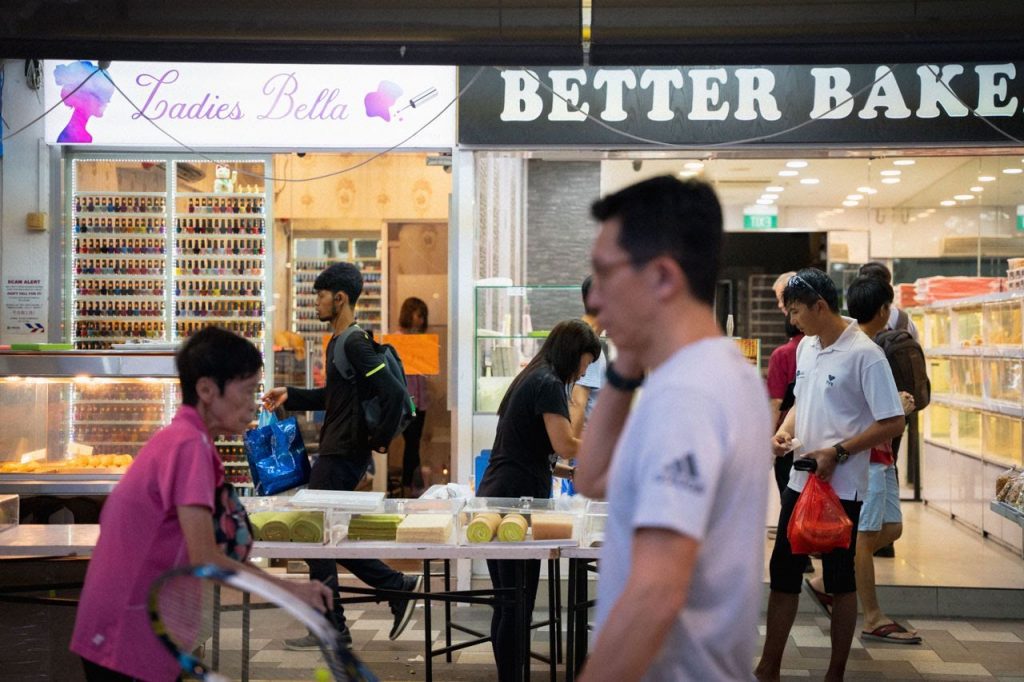GE2020 saw the PAP winning 61.24% of the popular vote, presumably a disappointing fall from GE2015’s 69.9%, but surely an unsurprising result in what has been a downward trajectory of the incumbent’s mandate since at least 2001. In PAP’s wrap-up conference early 11 July, 2 out of 3 questions taken from the floor pressed PM Lee about the “youth vote”. To the second reporter PM Lee replied, and it is worth quoting in full here:
“Different generations have different life experiences, and the young people have significantly different life aspirations and priorities compared to the older generations. And this will have to be reflected in our political process and in the government policies, because in the end the [goal of] government policies must be to achieve the aspirations of every generation of Singaporeans. At the same time, we also hope that new generations of Singaporeans look…critically but with an open mind at what the previous generations have done to examine what is relevant what continues to make sense for them in a new environment and to learn from these experiences hard-won by their parents and grandparents, so that they don’t have to learn them all over again and pay a high price which has already been paid.”
PM Lee’s answer suggests––and in this suggestion PM Lee is not alone; academics, commentators, ground sentiment all echo—that the younger generation, in their pursuit of liberal and progressive ‘post-materialist’ values, differ and thus voted differently from the older generation who prioritise pragmatic ‘bread and butter’ issues.

Here, at least two conflations are made.
First, that the pursuit of ‘post-materialist’ values are held mostly, if not only, by the young. And conversely, that only the old are ‘pragmatic’.
Second, that ‘post-materialism’ necessarily stands in contrast to ‘pragmatism’.
Taken together then, the young and old are largely in opposition.
Though they may be right that more young people care about moral goods like civil liberties and equality, it is silly to assume that young people neither want nor care about employment and housing. We want both. We want economic growth with greater equality, a competent government that is accountable, and a diverse Singapore that is tolerant and inclusive. You think we want democracy but don’t want roti?

Pitting ‘post-materialism’ and ‘pragmatism’ against each other masks the possibility that we can have both morality and the economy. This election has rewarded opposition members, such as WP’s Dr. Jamus Lim and Raeesah Khan, and to a lesser extent PSP’s Tan Cheng Bock, who succeeded in balancing (if not, brute forcing) pragmatism with post-materialism, at least in rhetoric. Only time will tell if the opposition can hold true to these promises, and if moral and economic goals can co-exist. But what we can tell now is the strawman argument that the young do not care for ‘bread-and-butter’ issues. We do care, we just care for more.
Of course, PM Lee’s explanation is more substantive than just differing aspirations of generations. Granting that the young crave ‘post-materialism’ and materialism, still standing on the side of the PAP is presumably the “hard-won” knowledge, reflected in history and held by older Singaporeans, that we can’t have both because having economic goods comes at the expense of moral goods, or even that moral progress is unimportant.
But if it is true that older Singaporeans and the government have hitherto neither prioritised nor aspired towards ‘post-materialism’, then it just means we’ve never tried to balance both. How then, can this pragmatic “knowledge” be “hard-won”? This knowledge is either moot, or refers to the unimportance of moral progress.
If so, then the merits of ‘post-materialism’ are either underestimated or misunderstood.
There are two sides to post-materialism. On one hand, post-materialism denotes, in a positive sense, values of social justice, equality, and rights. On the other is post-materialism’s critical arm, warning against the over-fixation on material goods and economic indicators like growth and unemployment. Taking either strands of ‘post-materialism’ in isolation propagates stereotypes: the former overly idealistic, the latter overly critical and ignorant of lived experiences. The brandishing of anti-post-materialist sentiments vacillates between the two sides to paint a skewed image of the lofty and detached youngster.
But when we understand moral ideals and healthy criticism in tandem, post-materialism calls for a revision of, not a revolution against, what is currently thought of as our overly-materialistic society.
There is danger then, in pitting ‘post-materialism’ against down-to-earth ‘bread-and-butter’ issues. By uncritically castigating ‘post-materialism’ as lofty, we are led to think that these goals are unimportant and undesirable. Suddenly, to strive for social progress is to be detached from reality, and those who aspire towards it are not sufficiently grounded.
Yet, calls for equality and anti-discrimination usually come from the ground. In fact, they probably arise from the very bottom of the social pyramid.

It is obvious that many young people do not just want post-materialism. We’d also do well to realise that ‘old people’ too, can and do want social progress. My point is not that ‘post-materialism’ is not new because the people calling for it may be old. Rather, I’m throwing the age/generational fault line out the window.
The generational divide is misleading because the issues that ‘post-materialism’ counteracts are not new. Most are long-standing. We’d be ignorant to insist inequality isn’t an important issue in Singapore, naïve to deny that inequality today coincides with ethnic (and religious) lines, and unreasonable to dismiss the everyday racism some members of minorities continue to experience.
Some problems today are natural consequences of our neoliberal economy and brute self-censorship. If we consider that issues of inequality arise from an insufficiently and inappropriately regulated market and imperfect meritocracy, then we’d realise that calls for equality and inclusivity would have arisen sooner or later, and do not just miraculously sprout from the mouths of Gen Z voters. We’d also benefit in realising that we have to first correctly identify the stickiest root problems before we can solve them, and that doing so probably requires civil discussion more than it does calling the cops at every mention of the issues of ‘race’ and ‘religion’.
In other words, the likelihood of you calling for ‘post-materialism’ matters not when you are born, but to whom you are born: which intersections of socio-economic class, race, gender, and in some cases religion, etc.
The dichotomy between young peoples’ ‘post-materialism’ and older peoples’ ‘pragmatism’ then, is an unnecessary and false generational divide. PM Lee too, does not endorse this generational divide, because “the generations have to work together” and “not have a disconnect”. So let’s drop this meaningless “young people only know how to talk about equality and progress” discourse, because it is creating the very divide we seek to eradicate.
Furthermore, the treachery of the young ‘post-material’/old ‘pragmatic’ dichotomy does not just stop at creating a false generational divide, masking the long-standing, deep-seated nature of Singapore’s pertinent problems. It also obfuscates the people who are actually calling for ‘post-materialism’.
If problems like inequality have always been in the making, manifesting as systemic wins and losses for predictable groups of people, then those who call for social progress are more likely to be victims and sympathisers of socio-economic inequality and arbitrary discrimination. (Conversely, those who call for the status quo, actively or inadvertently, probably benefit or aren’t disadvantaged by our ‘pragmatic’ state of affairs.) Dismissals of ‘post-materialism’ as hot-headed loftiness then, risk downplaying issues like inequality and discrediting the lived experiences of their victims.

‘Post-materialism’ and ‘pragmatism’ are and can be many things. Unfortunately, post-GE2020 pits them against each other, spawning the fiction of the youth vote, where ‘youth’ and ‘post-materialism’ have become synonymous.
Parties that believe post-materialism is a priority only for younger Singaporeans risk alienating other demographics––especially those already disproportionately affected by familiar forms of injustice––for whom democracy, justice, and equality matter too. They also risk overlooking practical matters that lie at the core of issues like inequality. In so doing, they risk missing the people’s message to them, to focus on and fix the issues that matter.
The convenient dichotomy of ‘post-materialism’ and ‘pragmatism’ has become an easy excuse, and is becoming an effacement of angry, resigned and oft-disadvantaged voices of Singapore. The lesson is not for the complete overtaking of ‘pragmatism’ by ‘post-materialism’. Insofar as ‘post-materialism’ and ‘pragmatism’ are useful categories, we benefit in negotiating the space between the two poles: striking and re-striking balances as changes unfold.
As mentioned earlier, a more fruitful understanding of ‘post-materialism’ is an expansive one. ‘Post-materialism’ is theoretically not at odds with ‘pragmatism’, but encompasses it. And ‘pragmatism’, whether philosophical or ideological, when understood as an experimental, can-do method of doing things, makes ‘post-materialism’ and ‘pragmatism’ complementary, not contrasting.
If to love and to live within this nation is to fail and be failed, but most crucially to ceaselessly woo, then our work as loving inhabitants has just begun. In the face of a seemingly withdrawn incumbent and an imperfect democracy, we’d do well to resist easy dichotomies that divide, and to persist with, defend, and constantly improve our flawed institutions.






